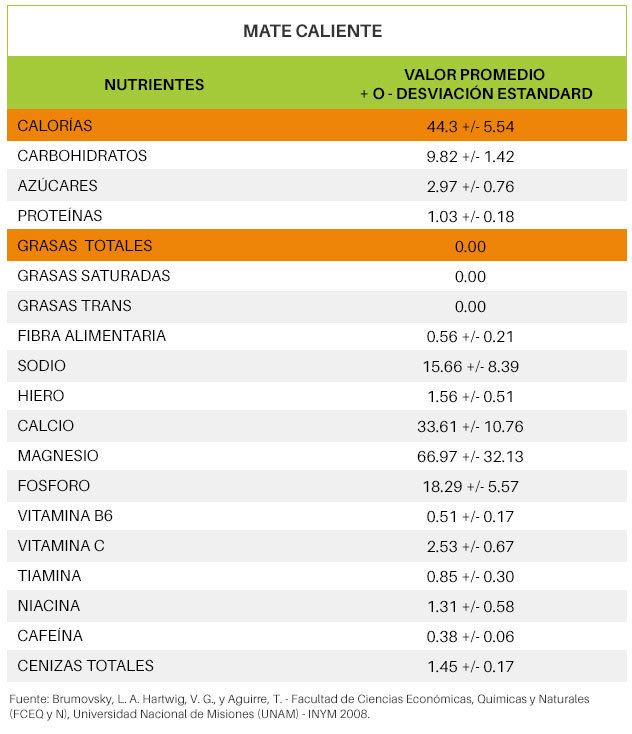s
The mate is not only a powerful antioxidant, source of vitamins and minerals, but it also helps to reduce bad cholesterol.
Its main benefits are:
Hot mate (the most popular form of drinking it) contains 60% more antioxidants than green tea.
Yerba Mate infusions, mainly the traditional mate, have a great antioxidant power due to their high concentration of polyphenols .
Polyphenols improve the body's natural defenses and protect it from cell damage.
Yerba Mate contains group B vitamins.
The body needs 13 vitamins, 8 of them belong to group B, which are essential for bodily functions such as the production of energy and red blood cells.
Yerba Mate contains potassium, an essential mineral necessary for the correct functioning of the heart; and magnesium, which helps the body incorporate proteins.
It contains xantinas (caffeine, theobromine, theophylline). These are bioactive compounds that stimulate the central nervous system and promote mental activity. They also increase energy levels and concentration.
During breakfast, afternoon snacks, at home, at the office or at work; the mate provides natural energy.
The results of a research work carried out by a research team from Universidad Juan Agustín Maza, in the province of Mendoza, confirm that Yerba Mate intake helps to reduce bad cholesterol and triglycerides.
PhD Ana Eugenia Thea, from Facultad de Ciencias Exactas, Químicas y Naturales de la Universidad Nacional de Misiones, noted that the infusions prepared with Yerba Mate are hypocaloric, as well as low in sodium, and their main contribution is in terms of micronutrients”.
The Mate "provides variable amounts of vitamins, being the contributions of vitamins B1 (thiamine) and B6 (pyridoxyna) the most important ones, covering 72.3% and 37.2% of the recommended daily intake for these nutrients in men and adult women between the ages of 18 and 50, respectively”.
As regards the mineral micronutrients content, “ the same amount of mate covers up to a 20,35 of the recommended daily magnesium intake suggested for the same population; and in relation to iron, up to a 13,5% of the required daily intake stated for adult men and up to a 6,2% of the daily intake for fertile women. For both cases, taking into account a medium bioavailability diet".
